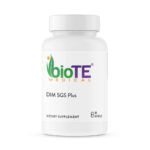What is a Yeast Infection?
A yeast infection is a type of fungal infection that can occur in different parts of the body, such as the skin, mouth, and vagina. It is caused by the overgrowth of a type of fungus called Candida. Yeast infections can cause a range of symptoms, depending on the affected area, and can be treated with over-the-counter or prescription medications, as well as natural remedies. Certain lifestyle and dietary changes can also help prevent yeast infections.
Understanding Yeast Infections:
Yeast infections, also known as candidiasis, are a common type of fungal infection that can affect various parts of the body, such as the skin, mouth, and vagina. Candida is the type of fungus that causes yeast infections.
Symptoms of Yeast Infections:
Yeast infections can cause a range of symptoms, depending on the affected area. Common symptoms of a vaginal yeast infection include itching, burning, soreness, and discharge. Oral thrush, a type of yeast infection in the mouth, can cause white patches on the tongue, inner cheeks, and throat. Skin yeast infections can cause red, itchy rashes with white scales.
Causes of Yeast Infections:
Several factors can increase the risk of developing a yeast infection, such as a weakened immune system, pregnancy, diabetes, certain medications (such as antibiotics), and hormonal changes. Poor hygiene, tight-fitting clothing, and high levels of stress can also contribute to the development of yeast infections.
Yeast Infection Treatment Options
There are several treatment options available for yeast infections, depending on the location and severity of the infection. For vaginal yeast infections, over-the-counter antifungal creams and suppositories are commonly used. Prescription medications, such as fluconazole, may be prescribed for more severe or recurrent infections. For skin yeast infections, topical antifungal creams or ointments may be used. In addition to conventional treatments, there are also natural remedies that can be effective in treating yeast infections. It’s important to consult with a healthcare provider to determine the best treatment option for your specific situation.
Over-the-Counter Treatments:
Over-the-counter antifungal creams, ointments, and suppositories are often the first line of treatment for yeast infections. These medications work by stopping the growth of the Candida fungus. Common over-the-counter treatments include Monistat, Gyne-Lotrimin, and Vagisil.
Prescription Medications:
In some cases, prescription antifungal medications may be necessary to treat yeast infections that do not respond to over-the-counter treatments. Examples of prescription medications for yeast infections include fluconazole, clotrimazole, and miconazole.
Natural Remedies:
Natural remedies for yeast infections include probiotics, tea tree oil, boric acid, and garlic. Probiotics, such as those found in yogurt, can help restore the natural balance of bacteria in the body. Tea tree oil and garlic have antifungal properties that can help fight yeast infections. However, it’s important to talk to a healthcare provider before using natural remedies, as some may cause adverse reactions.
Preventing Yeast Infections
There are several lifestyle and dietary changes that can help prevent yeast infections. These include maintaining good hygiene, such as keeping the affected area clean and dry, avoiding douching or using scented products, and wearing loose-fitting clothing. Eating a well-balanced diet that is low in sugar and high in probiotics can also help prevent yeast infections. Probiotic supplements or foods like yogurt, kimchi, and kefir can help maintain a healthy balance of bacteria and yeast in the body. It’s important to make these changes a part of your daily routine to reduce the likelihood of getting a yeast infection.
Lifestyle Changes:
Making certain lifestyle changes can help reduce the risk of developing yeast infections. These include wearing loose-fitting clothing, avoiding hot tubs and whirlpools, practicing good hygiene, and avoiding douching.
Dietary Changes:
Certain dietary changes can also help prevent yeast infections. Avoiding sugary and processed foods, as well as alcohol and caffeine, can help reduce the risk of developing yeast infections. Eating a balanced diet rich in probiotics, fiber, and healthy fats can also support immune function and reduce the risk of infections.
Managing Underlying Conditions:
If you have an underlying condition, such as diabetes or a weakened immune system, managing it effectively can help prevent yeast infections. Talk to your healthcare provider about the best ways to manage any underlying conditions.
In conclusion, yeast infections are a common condition that can cause uncomfortable symptoms, but there are effective treatment options available. Whether you choose over-the-counter or prescription medications, natural remedies, or lifestyle changes, it’s important to address the underlying cause of the infection to prevent recurrences. If you’re experiencing symptoms of a yeast infection or are unsure about the best treatment option for you, it’s recommended that you schedule an appointment with a healthcare provider, such as Women’s Health Center of Chicago. A healthcare provider can provide professional advice that’s specific to your individual medical case and help you find the most effective treatment to relieve your symptoms and promote optimal health. Don’t hesitate to take the first step towards feeling better and book an appointment today!




